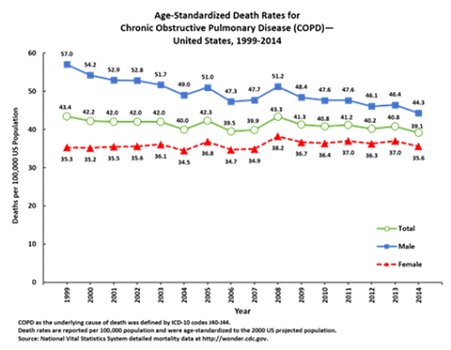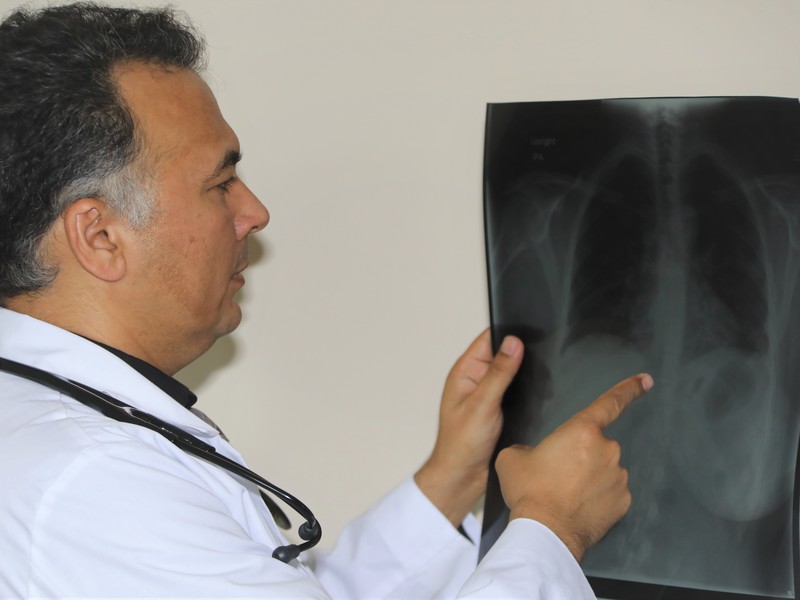What is Asthma and COPD?
Asthma and COPD are the most common lung diseases prevalent in adult population.
COPD, a chronic obstructive pulmonary disease, causes airflow blockage in the lungs due to alveolar damage. It includes emphysema and chronic bronchitis. Asthma, a reversible airway disease, causes airway inflammation when inflicted with triggers making patient symptomatic.
What are the common symptoms of asthma and COPD?
| Asthma | COPD |
|---|---|
| Coughing at night or early morning | Frequent coughing or wheezing |
| Shortness of breath | Excess phlegm, mucus, or sputum production |
| Chest tightness | Shortness of breath |
What are the causes of Asthma and COPD?
| Asthma | COPD |
|---|---|
| Viral infections in the childhood | Tobacco smoking |
| Genetic risk factors | Exposure to air pollutants in home and at work |
| Susceptibility to certain irritants | Genetic risk factors |
| Respiratory infections |
Why is it important to know about Asthma and COPD?
Asthma: As per CDC data there were total 3524 deaths and 10.7 death rate per million in 2019. Of these adults (age 18+ years) were 3346 deaths and 13.1 death rate per million and among children (age <18 years) were 178 deaths and 2.4 death rate per million. Ethnically Caucasian and African Americans were high risk groups.
COPD is among 10 leading causes of death in the United States. Almost 15.7 million Americans [6.4%] reported that they have been diagnosed with COPD and more than half of them were not aware that they had COPD.


How are asthma and COPD diagnosed?
Asthma and COPD are diagnosed with clinical physical examination, simple test called spirometry which measures lung functions and sometimes chest X-ray. The spirometry test also helps in monitoring the progression of COPD and adjustment of medications.
What are different ways to control Asthma and Emphysema?
Asthma is a reversible airway disease. But certain patients are prone to develop long term complications. Avoidance of irritant is important in prevention and treatment. Some patient might need medications to treat the Asthma. At times, we have found that few patients need only as needed rescue inhaler than daily long term medication.
COPD is treated with avoidance of exposure to pollutants and medications in certain patients. Smoking cessation is the biggest factor for COPD prevention and treatment.
Patient must understand and educate themselves regarding the use of rescue inhaler and regular inhaler which will be discussed by our team with each patient separately. Appropriate patients will be referred to pulmonologist and pulmonary rehabilitation.
Due to weak lungs from COPD, patients are more prone to get lung infection which can be avoided by well tested and guidelines recommended vaccines specially flu vaccine and pneumococcal vaccine.
Patient will be tested for need of supplemental oxygen.
Short term steroids play an important role in treatment of Asthma and COPD. Asthma and COPD treatment is a complex medical treatment. Our team will individualize medication plan for our patients and discuss with them who should get vaccines and when it is time to switch medications and follow-up with lung specialist (pulmonologist). Our team will motivate patient quit smoking.
What are the complications of untreated or uncontrolled asthma and COPD?
The common complication is asthma attack for asthmatic patient and COPD exacerbation or flareup for COPD patient. These patients are ideally treated in the hospital settings. Based on our assessment during clinical visit, if our team finds that patient is having asthmatic attack or COPD flareup, patient will be referred to the hospital immediately.
Other chronic long-term complications for COPD patient are pulmonary hypertension and heart failure. The most dreaded complication is respiratory failure when patient requires mechanical support called BiPAP and ventilator and these patients should always be treated at healthcare facility, especially hospital.
Do you provide breathing treatment?
We plan to provide nebulization therapy for eligible patients after thorough clinical assessment. if clinically needed we will refer them to nearby urgent care clinic and hospital.

